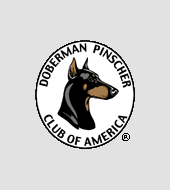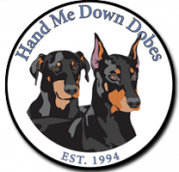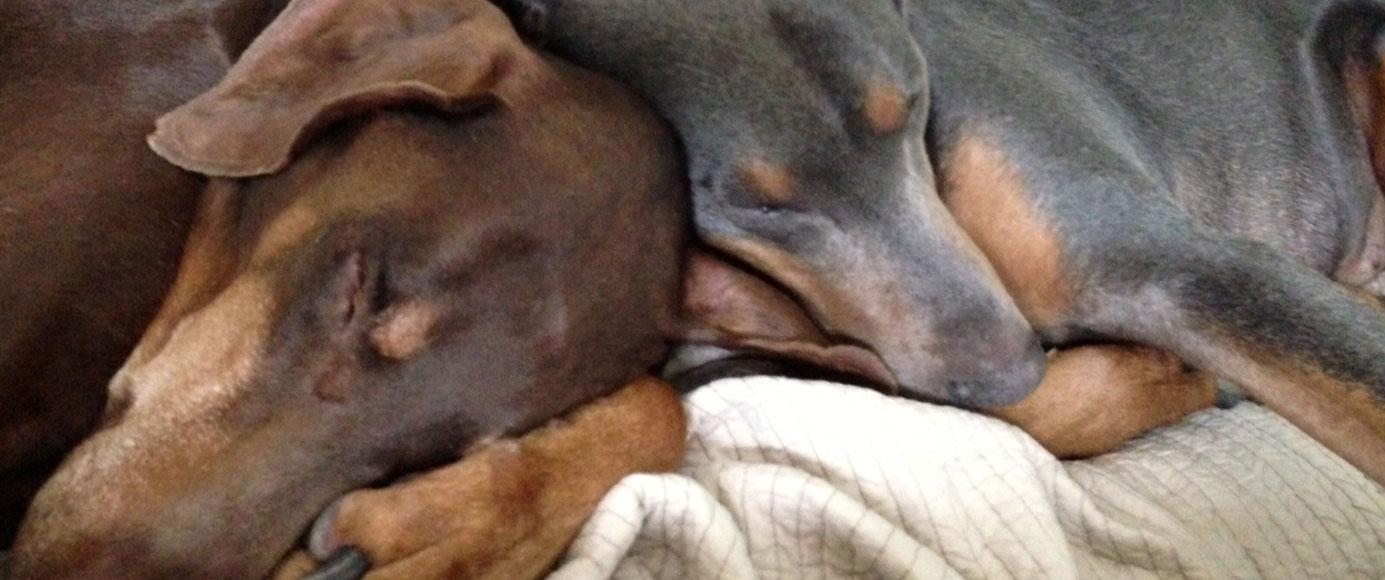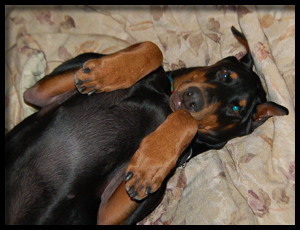
Hand Me Down Dobes is the oldest and largest purebred Doberman rescue in Ohio. Since 1994 our mission has remained the same - to rescue, rehabilitate and place Dobes into loving, forever homes.
We follow the Doberman Pinscher Club of America’s Code of Ethics. For more information visit the DPCA at www.dpca.org.




 Doberman Pinschers are unique creatures and, although they are generally healthy companions, there are some illnesses specific to the breed that you should be aware of.
Doberman Pinschers are unique creatures and, although they are generally healthy companions, there are some illnesses specific to the breed that you should be aware of. Keep your dog fit and healthy. Illness and injury are stressful and stress has been linked to episodes of excessive bleeding in some dogs. Also, have your adult dog’s thyroid checked periodically.
Keep your dog fit and healthy. Illness and injury are stressful and stress has been linked to episodes of excessive bleeding in some dogs. Also, have your adult dog’s thyroid checked periodically. – Whining, pacing or restlessness – Hacking noises like they are trying to cough something up – Salivating – foaming at the mouth – Inability to get comfortable – Pale or bluish gums – Rapid breathing and increased heart rate – Swelled belly – Anxiety, pain, weakness There is NO time to waste. Know where to find the nearest 24 hour full service emergency hospital. Call to alert them you are coming in with a dog who has bloated. They need to be ready for you.
– Whining, pacing or restlessness – Hacking noises like they are trying to cough something up – Salivating – foaming at the mouth – Inability to get comfortable – Pale or bluish gums – Rapid breathing and increased heart rate – Swelled belly – Anxiety, pain, weakness There is NO time to waste. Know where to find the nearest 24 hour full service emergency hospital. Call to alert them you are coming in with a dog who has bloated. They need to be ready for you.